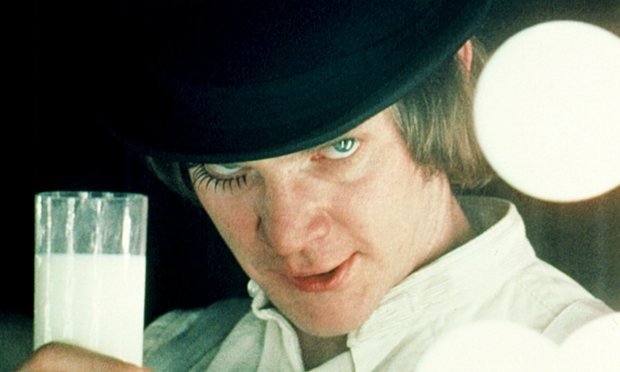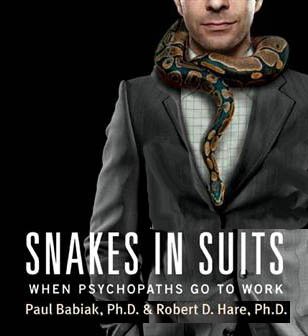Social Control Series #1: Why the Concept of Psychopathy is more Dangerous than a Psychopath

Did you know that frequently engaging in homosexual acts was once a characteristic of psychopathy? Any sexual practice too far outside the norm of monogamy was seen as abnormal, an indicator of a Psychopath. Casanova would have been diagnosed a psychopath.
In The Mask of Sanity by Hervey cleckley, a 1940s-50s treatise on psychopathic social deviancy, there is an account of a female who has sought psychological treatment because:
Her spontaneous complaint was of sexual promiscuity which she feared would damage her socially
The author’s only distinction between her and an actual female psychopath, is that she feels remorse and is distraught by her ‘deviant’ actions.

The characteristics of ‘psychopaths’ are in tandem with the moral values of a particular era.
How is it that Psychopath diagnosis is about the individual, when it changes with social mores, more than any other diagnoses? Think about that while you consider that psychopathy has no course of treatment; no prescription.
It is a convenient label then, as bad logic can claim that it’s just that serious a condition it can’t be cured!
Now the modern medical term for psychopathy is more appropriately titled ‘Anti-Social Personality Disorder’, true to rationalist, contemporary fashion. If someone keeps getting in trouble with the law, and doesn’t care enough by arbitrary standards, that is what they can be diagnosed as.
Now there is no such condition as psychopath or sociopath in the psychiatriy diagnostic manual, yet these emotive, damning terms are still common in our culture. What does this imply?
Already we can see that the terms have made it to our everyday language. Most commonly used towards pop-culture villains.

Who are the Lambs. The innocent Lambs of Christ?
When someone is found to act cruel in incomprehensible ways, people easily throw around the label ‘psychopath’. What does that say for the future? How could a person ever redeem their reputation after being called a ‘psychopath’ by enough people? By people whose words have great influence?
I believe that people use the Psychopath diagnosis to get pop-psychology fame. It’s a classic Fear Pitch.

The Corporate CEO-as-Psychopath has the underlying premise that somehow people are less empathetic when people suffer as a result of the Corporation’s success. I believe the truth is that they are just too far-removed to see the direct pain it may cause and anyone in their position would have the same results, only trying to keep the wheels turning. They are the new Demons and Devils of our culture.
Deconstructing the Psychopathic Traits
The modern definition of a Psychopath aka Anti-Social Personality Disorder is heavily based on the ‘Psychopathy Checklist’ (PCL)
The PCL was originally developed in the 1970s by Canadian psychologist Robert D. Hare for use in psychology experiments, based partly on Hare's work with male offenders and forensic inmates in Vancouver, and partly on an influential clinical profile by American psychiatrist Hervey M. Cleckley first published in 1941.
From Wikipedia Entry on Psychopathy Checklist
Notice the inherent subjectivity of the PCL traits:
- glib and superficial charm
- grandiose (exaggeratedly high) estimation of self
- need for stimulation
- pathological lying
- cunning and manipulativeness
- lack of remorse or guilt
- shallow affect (superficial emotional responsiveness)
- callousness and lack of empathy
- parasitic lifestyle
- poor behavioral controls
- sexual promiscuity
- early behavior problems
- lack of realistic long-term goals
- impulsivity
- irresponsibility
- failure to accept responsibility for own actions
- many short-term marital relationships
- juvenile delinquency
- revocation of conditional release
- criminal versatility

Some of the so-called psychopathic traits are related to a person’s talents and gifts. If someone is more charismatic than average, too smooth-talking and confident, too popular with the opposite sex, they may be a psychopath. When a person has desirable traits in abundance, it can seem like black magic to those who don’t.
Irrational feelings can arise when our insecurities our triggered
Sometimes modern standards of empathy are unrealistic and are more of a function of social posturing and virtue signalling.
For example, Westerners may feel it’s not right that there is so much poverty in the 'third world', but the reality is that there aren’t enough resources in the world for everyone to enjoy the luxuries we have in Western Civilization.
Even if wealth redistribution was possible, it doesn’t make any sense; we want to feel bad that people suffer and we need a scapegoat, so we point the finger at ‘Corporate Psychopaths’ to accuse them of becoming wealthy because they are unempathetic. If only more virtuous people were in those influential positions!
It is irrational.
It’s a class war byproduct; the wealthiest are considered immoral whereas suffering and sacrificing worldly possessions is pious.
And so the “Snakes in Suits” mythos arrives, breeding mistrust as to how anyone wealthy has got that way, implying they must have done so deliberately and mercilessly at the expense of others. That is why psychopathy is dangerous. It makes Devils out of humans.
Psychopath, Sociopath, Anti-Social Personality Disorder are all labels utilized for social control
The distinctions are not used to treat the ill, but only to keep and uphold norms and vilify our personal enemies.
Fear is used to make people accept that there are just “bad people” out there, who can never change, who are by nature predatory. And that they are not multi-faceted like the rest of us ‘civilians’ who are products of our environment, circumstance.
It’s like walking into a department store and upon seeing all the security cameras, assume they are worth putting there for the ~10% people who are ‘criminally inclined’. "I'm no thief!" We know the truth is they are there to deter all. Who doesn't like free things?
The dangerous extension of this is a future where the criminal justice system can label people as beyond rehabilitation and justify locking people up for the rest of their lives. The USA’s recent ‘three strike rule’ is an example of this becoming reality.
The ‘Psychopath’ is society’s adult version of a bogeyman.
One day it could be you..

Who is the devil you know?
Is it your lying, cheating ex-husband?
Your sadistic high school gym teacher?
Your boss who loves to humiliate people in meetings?
The colleague who stole your idea and passed it off as her own?
In the pages of The Sociopath Next Door, you will realize that your ex was not just misunderstood. He’s a sociopath. And your boss, teacher, and colleague? They may be sociopaths too.
The Sociopath Next Door by Martha Stout, February 8, 2005
Thumbnail Image: Malcolm McDowell as Alex in Stanley Kubrick’s 1971 film adaptation of A Clockwork Orange. Photograph: Everett Collection / Rex Feature
taken from The Guardian article "The 100 best novels: No 82 – A Clockwork Orange by Anthony Burgess (1962)"
I took a brief sociology class in college 30 years ago. They were adamant that there was no such thing as psychopathy. We were taught that all the symptoms you described are of a sociopath. I've since heard that psychologists do not acknowledge sociology. From what I've gathered, there is a fine line between the two. Correct me if I'm wrong, but the way I understand it is: A psychopath has trouble determining between right and wrong. A sociopath knows what's right and wrong, but will do wrong if it fulfills his/her narcissistic, self centered motives.
Yes as far as I know that is the distinction. And the sociological aspect (nature over nurture) is the focus on what a Sociopath is. Though I believe that the two are one and the same in regards that they are an extension of social control and enforcement of psychological norms. As they do not suffer from delusions like a psychotic person, so there is really no psychiatric distinction of relevence, its just branding someone a criminal and essentially its a scientific term for "evil"
Also the Psycopath distinction was in part due to the sociopathic traits applying to "white collar criminals" as they dont have incentive to commit the more thuggish crimes that get attention as 'blue collar' criminals do. They also can get away with things if they have money to bribe or to pay off the people they abused (but such things as being a shitty person dont warrant a permanent and evocative psychological label such as psychopath) To put it simply. More in depth would be another post.
Wikipedia on the Three Strikes Law:
https://en.wikipedia.org/wiki/Three-strikes_law